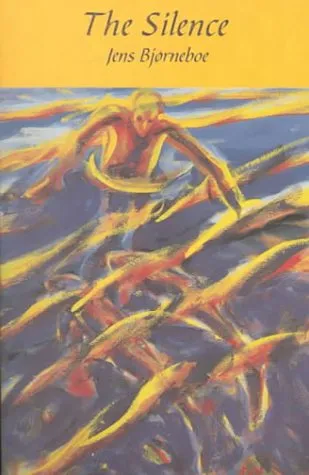The Silence
By (author): "Esther Greenleaf Mürer, Jens Bjørneboe"
Publish Date:
1973
ISBN0802313337
ISBN139780802313331
AsinThe Silence
Original titleStillheten
SeriesThe History of Bestiality Trilogy #3
Originally published in Norway in 1973, The Silence (Stillheten) is the third and final book of what has become known as The History of Bestiality trilogy. Dufour Editions is very pleased to have published in the United States the first two novels in this trilogy -- Moment of Freedom and Powderhouse -- and now, with The Silence, to make all three novels available in English for the very first time. It will give readers a chance to experience first hand Bjorneboe's remarkable, fierce, and even savage fictional inquiry into what he saw as the nature of evil in the twentieth century.As with the first two novels in the trilogy, The Silence also rejects the traditional modes of fiction to posit instead an essay-like novel of ideas, philosophy, and argumentation. It is, in fact, even further removed from the loose fictional form of the two previous protocols, and owes more to the works of Foucault, Girard, and Sartre. Described by Bjorneboe as an anti-novel and absolutely final Protocol, The Silence was ahead of its time in its critique and discussion of the post-colonialist world. Here the inquiring narrator explores not just European history, as he did in the first two novels, but the crimes committed by Europeans against the rest of humanity in the name of expansion and conquest. Set in an unnamed country in northern Africa, the narrator is looking at Europe from the outside. With his friend Ali, an African revolutionary intellectual, he discusses in epic fashion the history of colonialism. Cortez' destruction of the Aztec empire and Pisarro's of the Incas were crimes of genocide comparable with Hitler's against the Jews, and Columbus's glorious discovery of America becomes simplyan act of colonialism. He engages in imaginary conversations with Columbus, Robespierre, God, and Satan. He becomes totally immersed in what he perceives as the world's wickedness. As he tells us: I don't believe that humanity is evil, nor that humanity is good -- I believe that a human being is partly evil and partly good. Which side shall be permitted to grow and develop depends on ourselves. On a planet where people have freely chosen to let themselves be burned alive for the sake of truth, the good must have great possibilities. The court sat, the charges were read, the witnesses heard, the evidence presented, humanity was found guilty. I kept the trial records -- these are the protocols, these three novels. This is the History of Bestiality. Now, is the silence. As Bjorneboe puts it in the third and final novel, there is a transformation in humanity brewing and whether it will result in total destruction or a redeemed humanity is unknown, but we do have the possibility -- the potential, the humanity -- of cooperating in our own redemption.Despite its presentation of horrors and man's inhumanity to man, and its grim portrayal of the narrator's long plunge into the tunnel of depression, The Silence does not depress. It praises man's immeasurable capacity for good; man is the destroyer of all things, but also the renewer of all things. Given what man has done to his fellow man in just these last few years, in Africa, in Latin America, in South America, in Eastern Europe, the twenty-five years that have passed since this novel was first published have not diminished its relevance or its urgency.
